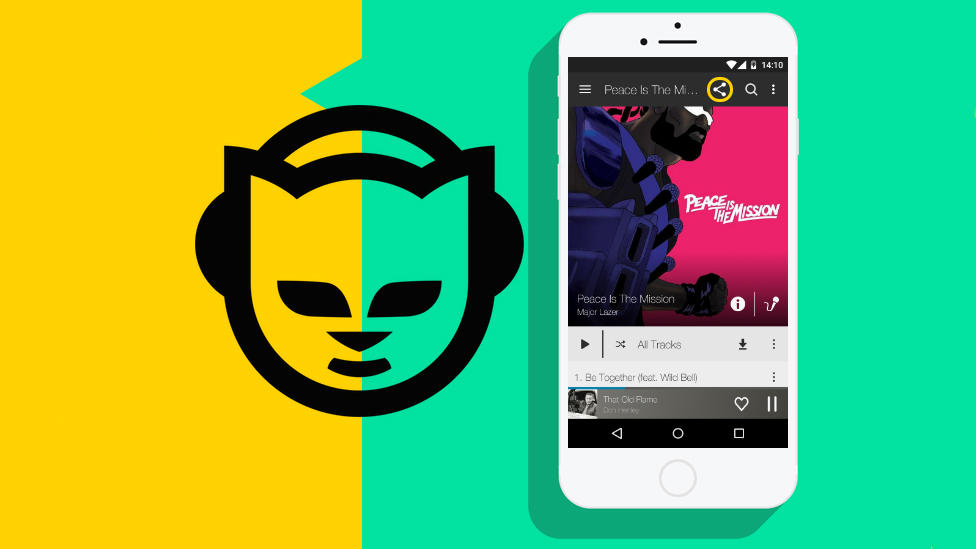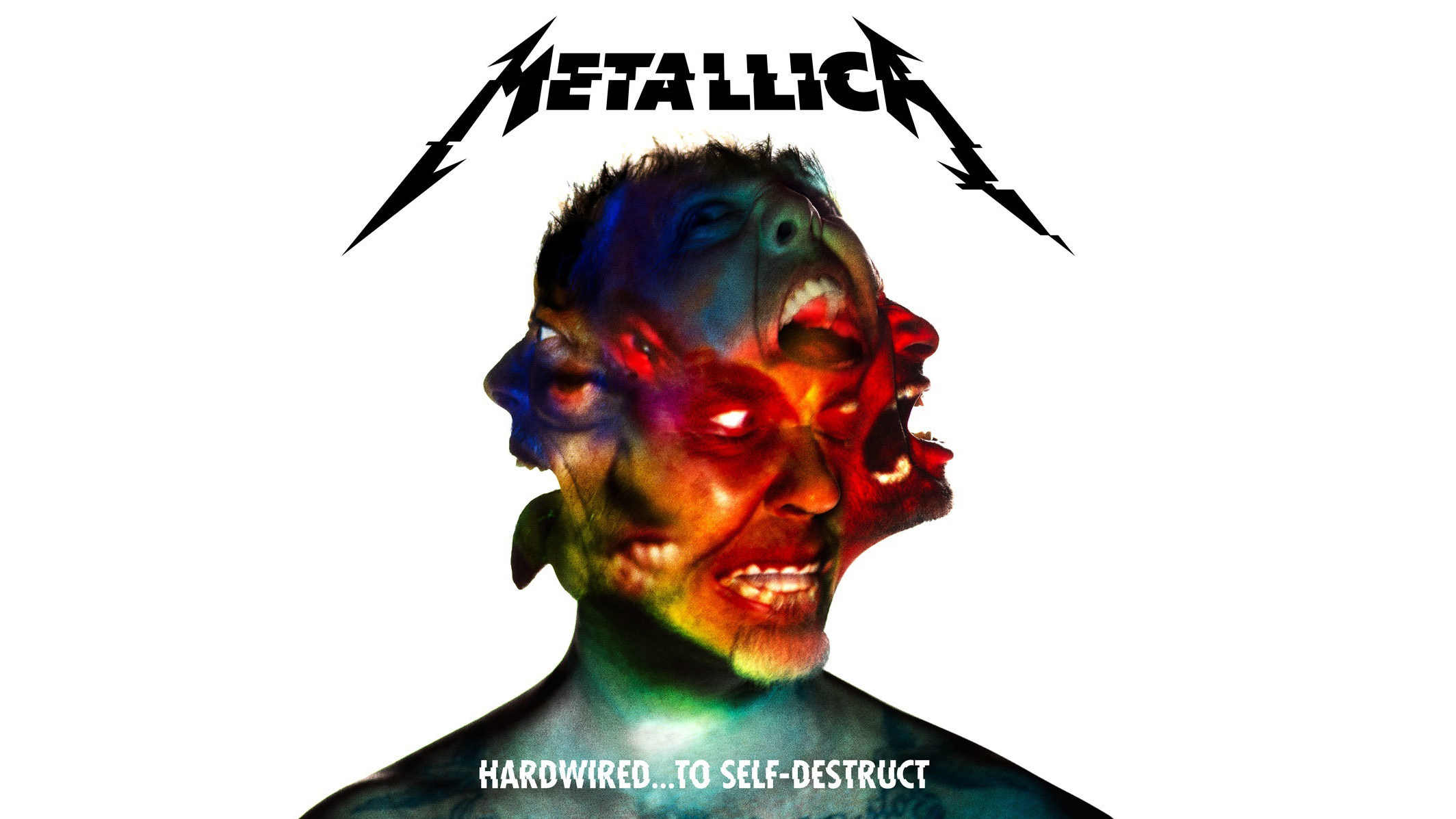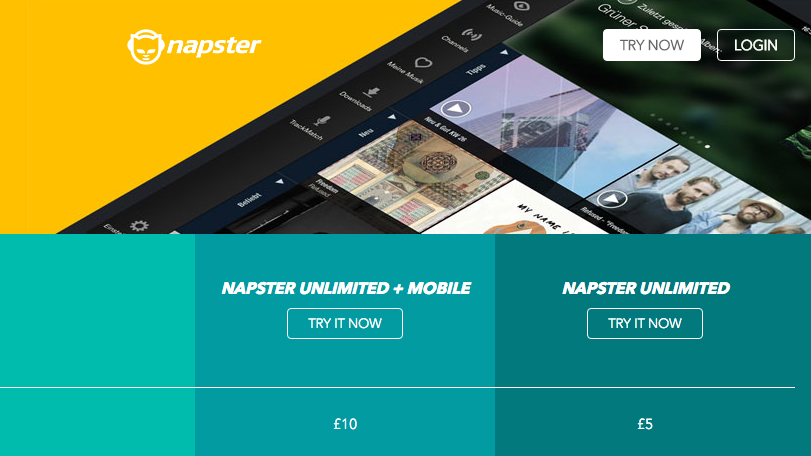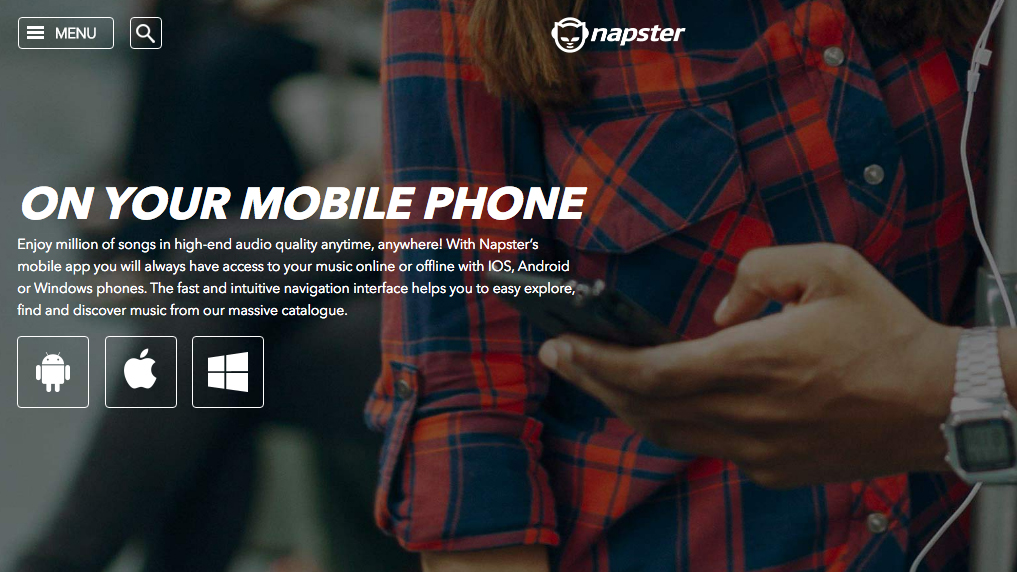Napster on Metallica, making music personal and the future of streaming
The long journey from lawsuit magnet to legitimate streaming service

It’s 2000 and peer-to-peer poster boy Napster is in the courts. Metallica, lead by drummer Lars Ulrich, has waged war on the site because the band’s songs were being downloaded by users for free. Napster eventually settled but it was the beginning of the end for that iteration of the service.
By 2001, Napster, which boasted 26 million users, was gone - torn apart by record company lawsuits.
This should have been music to Metallica’s ears but the backlash was severe. Napster fans felt Metallica singled Napster out, when it was just one of many P2P services that were sharing music illegally. They also felt Metallica was trying to stymie the future of music - a future where millions of tracks are available to all at the press of a button.
Skip to 2016 and that future is real and legitimised thanks to music streaming. Music may not be free, but it has been freed, and, unlike P2P sharing, the record industry has found a way to monetise streaming.
Piracy is still a problem but the game has changed. So much so that this year Napster - now long been a legitimate streaming service, with over 40 million tracks - and Metallica struck a deal that sees their back catalogue available on the site.
Sometimes pigs do actually fly.

“The arrival of Metallica onto the app shows how far Napster and the music industry have come in the past 17 years,” says Thorsten Schliesche, Executive VP and General Manager for Europe at Napster.
Sign up for breaking news, reviews, opinion, top tech deals, and more.
“We’re a very different proposition to the product that shook up the industry almost two decades ago, yet we’re still innovating and moving things forward.”
Napster: then and now
The Napster of today is a very different beast from the site Shawn Fanning created. Its brand survived the lawsuits, was bought by Roxio and was eventually acquired by the team behind Rhapsody. Rhapsody and Napster merged in 2016 with the Napster name remaining. But while many changes have happened, Schliesche believes that a core Napster belief remains.
“We’re a very different proposition to the product that shook up the industry almost two decades ago."
Thorsten Schliesche, Napster
“When Napster first entered onto the global music stage it was a service which pushed boundaries; the platform was an innovation that shook up how we consumed music forever,” Schliesche explains.
“Those core values – excitement, innovation, boundary pushing – remain true to the brand today, and bringing that forward with the development of the product has been key to its success.
“The music world is very different now to 20 years ago, and listeners understand that. The main challenge has been ensuring that the Napster app offers the best streaming product in the industry, especially with new updates such as EarPrint technology.”

Napster does need a USP, as do all of the current crop of streaming sites. The market is crowded and they all offer something similar - millions of tracks to stream for a subscription fee.
Currently we have Amazon working on voice, Spotify offering tailored playlists, Deezer pushing human recommendations, Google grappling with contextual music offerings, Apple tinkering with celebrity and exclusivity. Napster’s EarPrint tech is much more cerebral than all of these.
Making music personal
“Music is personal to every listener, with each listener having their own musical taste and listening habits. Napster has worked with headphone manufacturer EVEN to integrate EarPrint technology, which captures how an individual listener hears, and tunes precisely to each ear,” explains Schliesche.
“Hearing changes over time, is different in each ear and is unique to every person. EarPrint compensates to each ear for a fuller, more rounded experience. It means that each listener has a more personalised experience using the Napster app.”

Time will tell whether deep personalisation such as this is what people want in a streaming service but it’s heartening to see the industry push to innovate in new ways. The music industry may have found an outlet that can sway people away from piracy and cushion the blow of lower physical sales of music but streaming is still in its infancy, especially when it comes to the distribution of money to artists, something Schliesche is keen to point out.
"It’s only now that the industry is reaching the age of maturity where there is a fair deal for everyone."
Thorsten Schliesche, Napster
“Napster was the brand which revolutionized the way that music is bought and sold, yet it’s only now that the industry is reaching the age of maturity where there is a fair deal for everyone – the platforms, the artists and the listeners.
“The next evolution will be the monetising of streaming products. In the mobile world, freemium is king and so streaming services have to be able to offer something more through their subscriptions, whether that be enhanced music access, better playlists, improved recommendations. There needs to be a point of difference, and Napster is delivering it.”

Marc Chacksfield is the Editor In Chief, Shortlist.com at DC Thomson. He started out life as a movie writer for numerous (now defunct) magazines and soon found himself online - editing a gaggle of gadget sites, including TechRadar, Digital Camera World and Tom's Guide UK. At Shortlist you'll find him mostly writing about movies and tech, so no change there then.